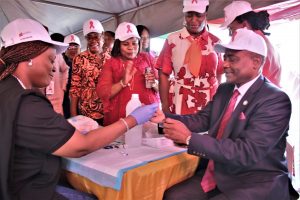Ski federation admits ‘too many races’ on World Cup calendar


SOELDEN, Austria (AP) — The upcoming Alpine skiing World Cup season includes “too many races,” the International Ski Federation has conceded amid criticism from racers and coaches.
Without Olympic Games or world championships in February, the sport’s top-level circuit runs non-stop from October through March with 44 men’s events at 22 different venues, and 41 women’s events at 21 venues.
That’s an increase of six races for both competitions compared to last season and has led to concerns that the tight schedule will not leave enough time for skiers to rest between events.
“I know it’s not easy for the athletes and also for some organizers. We are now at a certain limit, there is no question,” FIS President Gian Franco Kasper said Friday, a day before the season starts with a women’s giant slalom on the Rettenbach glacier, followed by a men’s race on Sunday.
“We have too many races. But FIS is not here to prevent races but to organize races,” said Kasper, adding that FIS could improve on scheduling by planning the calendars three years ahead.
While there is a four-week break until the next event — slalom races in Finland on Nov. 23-24 — the circuit will take up full speed afterward, with stops in Canada, the United States, China and Japan adding to its European core.
The city events for top-16 racers have been removed from the schedule, but FIS added more parallel slaloms and giant slaloms to regular World Cup venues.
Also, the Alpine combined discipline has been revived, with three races for the men and four for the women.
However, no racer is planning to compete in all 44 or 41 events.
More skiers have been specializing in one or two disciplines in recent years, while the few all-rounders left have skipped a few events in order to create sufficient rest days in their schedules.
Like Mikaela Shiffrin, who could potentially start in all events but has been taking midseason breaks each year.
“For sure I am going to continue this process of picking which races make sense and what’s going to work,” the three-time overall champion told The Associated Press.
Last season, for instance, she skipped races in Rosa Khutor to avoid a grueling journey from Switzerland to Russia and back to the Czech Republic within 10 days.
“Sometimes it doesn’t really make sense how they make it work,” Shiffrin said. “Which races are where? You are traveling all over the place, kind of in the wrong direction half of the time. That’s actually very difficult to manage. But then they can’t expect us to do everything.”
Austria men’s head coach Andreas Puelacher also pointed out it’s not just the high volume but the actual scheduling of races that causes problems.
“FIS hasn’t listened to us,” he told Austrian newspaper Tiroler Tageszeitung. “All coaches have pleaded for a reduction of the number of races. It’s dangerous.”
Puelacher named a floodlit night slalom in Alta Badia on Dec. 23, followed by downhill training in Bormio three days later, as the worst example.
“So as a racer you get home on the 23rd in the night or the 24th in the morning and you have to leave for Bormio on the 25th. That’s irresponsible,” he said.








